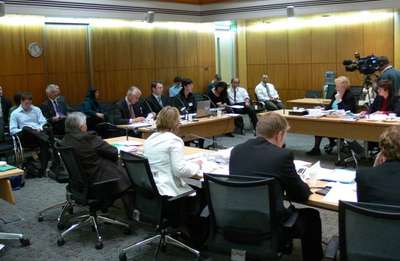Submissions On Controversial Laws Deserve Privacy
 Media Release 16 February 2017
Media Release 16 February 2017
Family First NZ is supporting a call made at Parliament today for more privacy being granted to submitters to select committees on controversial social legislation.
“Submitters are arguing that the manner of publishing submissions on the Parliamentary website is unfair, undermines our democracy and must be changed urgently. We back up that concern. When controversial issues such as same-sex marriage or euthanasia or prostitution come before Parliament and people are encouraged to make submissions, many have said that they are turned off the process because of the potential backlash or negative response to their personal opinion. This was a huge concern during the recent marriage debate from those who were arguing for traditional marriage,” says Bob McCoskrie, National Director of Family First NZ.
“But this then means that submitters are deterred from speaking up, leading to an incomplete process at the select committee phase. Privacy of the submitter should be given greater priority. It is the content that matters and can be published – not who the person is. Organisations however do not deserve this same status.”
Currently submissions to Parliament are published with the submitter’s full name within the webpage address. As a submitter argued today, this ensures that search engines will always put these pages near the top of the list when a search is done on that person’s name and the legislation in question.
“Family First is aware of submitters who have been affected when applying for jobs, or who have been targeted on social media because of their submissions on controversial issues. This has a deterrent effect on open democracy,” says Mr McCoskrie.
“A numbering system would easily solve this issue where a submitter requires privacy. This in no way undermines the select committee process and would give confidence to all New Zealanders, irrespective of their views, that their important contribution as an individual will not negatively impact their personal life.”
ENDS






